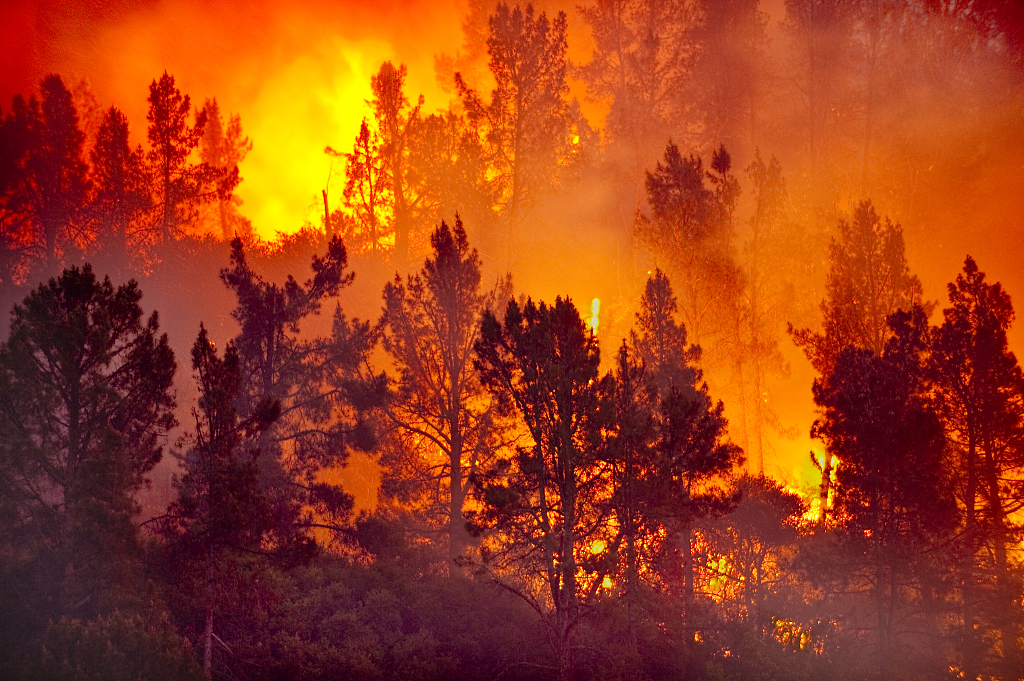Due to climate change and changes in land use, wildfires are predicted to rise by up to 14 percent by 2030, 30 percent by 2050 and 50 percent by the end of the century, according to a report published on Wednesday by the UN Environment Programme (UNEP) and GRID-Arendal.
The report, “Spreading like Wildfire: The Rising Threat of Extraordinary Landscape Fires,” says that wildfires and climate change are “mutually exacerbating.” Wildfires are made worse by climate change through increased drought, high air temperatures, low relative humidity, lightning, and strong winds resulting in hotter, drier, and longer fire seasons. At the same time, climate change is made worse by wildfires, mostly by ravaging sensitive and carbon-rich ecosystems like peatlands and rainforests.
Land-use change can also make the fires worse, such as logging that leaves behind debris that can easily burn and forests that are intentionally ignited to clear land for farming.

Wildfires are predicted to rise by up to 14 percent by 2030, 30 percent by 2050 and 50 percent by the end of the century. /VCG
Wildfires can threaten lives and livelihoods, affect national economies, and have other potentially long-lasting impacts on people.
Wildlife, as well as natural habitats, are also rarely spared. Wildfires have even pushed some animal and plant species closer to extinction. The 2020 bushfires in Australia are estimated to have wiped out billions of domesticated and wild animals.
“From Australia to Canada, the United States to China, across Europe and the Amazon, wildfires are wreaking havoc on the environment, wildlife, human health and infrastructure,” the report said, adding that while the situation “is certainly extreme, it is not yet hopeless.”
The publication calls on governments to adopt a new “Fire Ready Formula,” with two-thirds of spending devoted to planning, prevention, preparedness, and recovery, with one third left for response.
“Current government responses to wildfires are often putting money in the wrong place. Those emergency service workers and firefighters on the frontlines who are risking their lives to fight forest wildfires need to be supported,” said Inger Andersen, UNEP Executive Director. “We have to minimize the risk of extreme wildfires by being better prepared: invest more in fire risk reduction, work with local communities, and strengthen global commitment to fight climate change.”
The restoration of ecosystems is an important avenue to mitigate the risk of wildfires before they occur and to build back better in their aftermath. Wetlands restoration and the reintroduction of species such as beavers, peatlands restoration, building at a distance from vegetation and preserving open space buffers are some examples of the essential investments into prevention, preparedness and recovery.
Source: CGTN, 24-Feb-2022.
https://news.cgtn.com/news/2022-02-24/Wildfires-to-increase-by-50-by-2100-UNEP-17UoBD4Gw4U/index.html